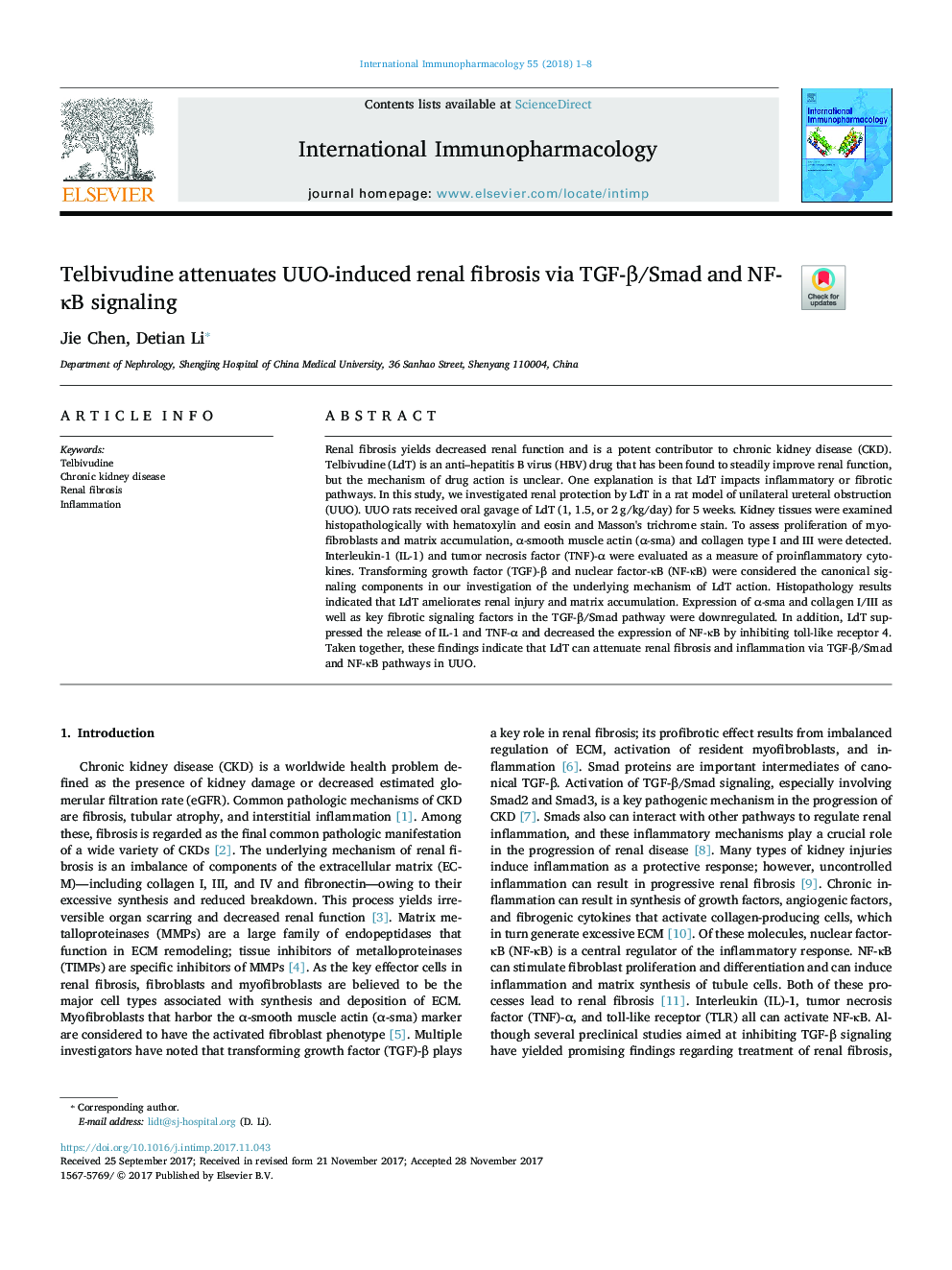| Article ID | Journal | Published Year | Pages | File Type |
|---|---|---|---|---|
| 8531408 | International Immunopharmacology | 2018 | 8 Pages |
Abstract
Renal fibrosis yields decreased renal function and is a potent contributor to chronic kidney disease (CKD). Telbivudine (LdT) is an anti-hepatitis B virus (HBV) drug that has been found to steadily improve renal function, but the mechanism of drug action is unclear. One explanation is that LdT impacts inflammatory or fibrotic pathways. In this study, we investigated renal protection by LdT in a rat model of unilateral ureteral obstruction (UUO). UUO rats received oral gavage of LdT (1, 1.5, or 2 g/kg/day) for 5 weeks. Kidney tissues were examined histopathologically with hematoxylin and eosin and Masson's trichrome stain. To assess proliferation of myofibroblasts and matrix accumulation, α-smooth muscle actin (α-sma) and collagen type I and III were detected. Interleukin-1 (IL-1) and tumor necrosis factor (TNF)-α were evaluated as a measure of proinflammatory cytokines. Transforming growth factor (TGF)-β and nuclear factor-κB (NF-κB) were considered the canonical signaling components in our investigation of the underlying mechanism of LdT action. Histopathology results indicated that LdT ameliorates renal injury and matrix accumulation. Expression of α-sma and collagen I/III as well as key fibrotic signaling factors in the TGF-β/Smad pathway were downregulated. In addition, LdT suppressed the release of IL-1 and TNF-α and decreased the expression of NF-κB by inhibiting toll-like receptor 4. Taken together, these findings indicate that LdT can attenuate renal fibrosis and inflammation via TGF-β/Smad and NF-κB pathways in UUO.
Related Topics
Life Sciences
Immunology and Microbiology
Immunology
Authors
Jie Chen, Detian Li,
